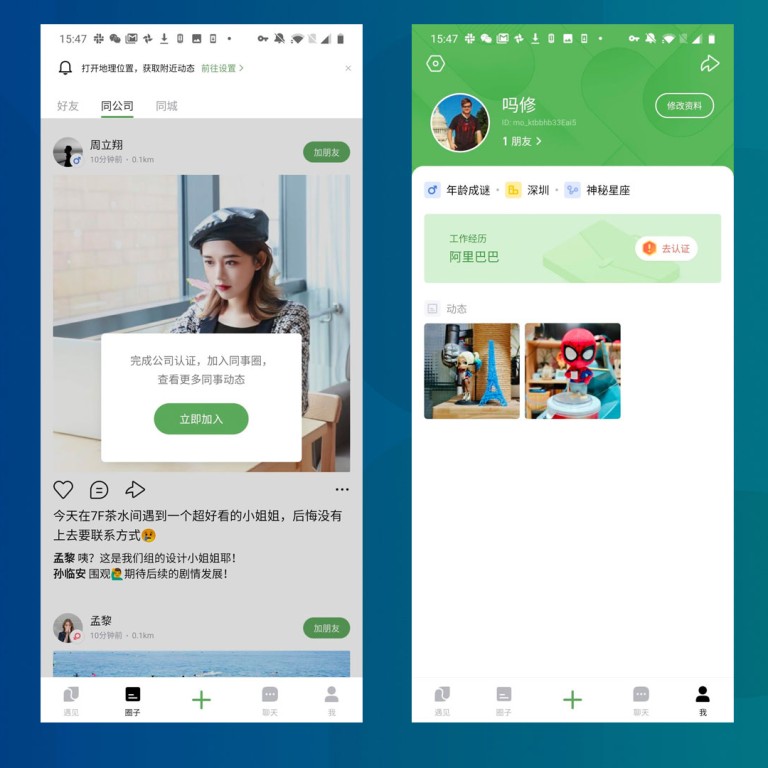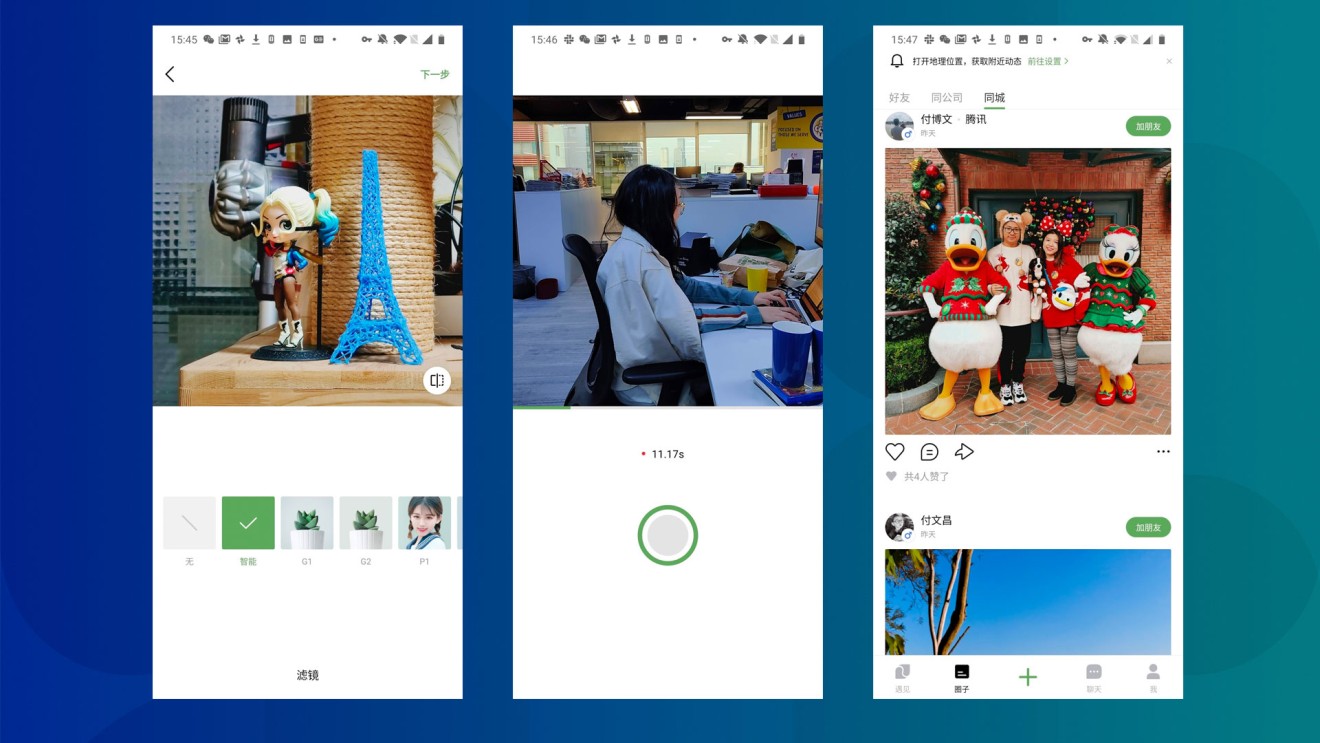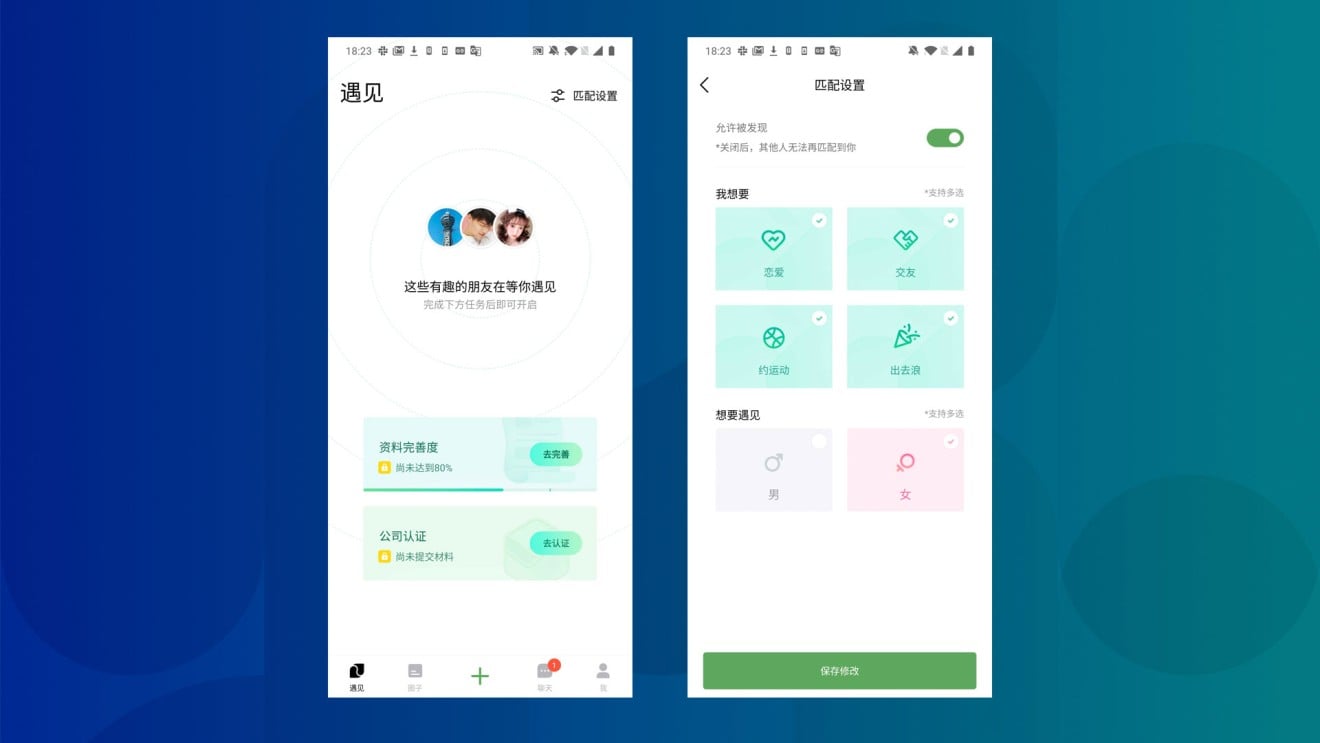
Tencent’s resurrected social app is Facebook, Instagram and Tinder wrapped into one
The Chinese giant behind WeChat is quietly trialling a revamped version of Pengyou as it faces competition from ByteDance and others for teenage users
WeChat, the app that does everything
Days later, Tencent quietly started sending out invite codes to Pengyou. Armed with my own code, I took a look at what Tencent’s new social network is offering.

The layout is similar to Instagram, with the same square pictures and buttons for liking and commenting. There are also a variety of photo filters and video trimming tools.
But whereas Instagram and WeChat both lump posts from all your connections into a single feed, Pengyou divides them into three tabs: Friends, colleagues, and people living in the same city.
Interestingly, the app also asks users to upload personal credentials like diplomas or a company letter for verification. The real name approach is supposedly designed to stop profit-seeking businesses from getting onto the platform while bringing some transparency to app to better help people select who they want to interact with.

But more than just a Tencent’s spin on Instagram or Facebook, Pengyou also seems to be dabbling in dating. A function on the app lets users match with others looking for the same type of connection. One option is a romantic relationship, but you can also look for friends, a study buddy or people to party with. And you can select whether you want to match with a man or a woman.

The match function is only available to people who upload their credentials and finish the verification process. Once you do, Pengyou will give you three matches a day.
The platform was was renamed Pengyou in 2011, but it never really caught on. Tencent launched WeChat that same year, and the mobile messaging app now dominates people’s online lives while microblogging site Sina Weibo has become the default public forum. By 2017, Tencent finally shuttered Pengyou.
How Weibo became China’s most popular blogging platform
Online reactions to the resurrected version of Pengyou show that Tencent has an uphill climb in diversifying its social network offerings.
How Weibo became China’s most popular blogging platform
Another Zhihu user presented a more tragic, but very plausible, fate potentially awaiting the new Pengyou.
“I think conversations will definitely end with, ‘Let’s add each other on WeChat.’”
For more insights into China tech, sign up for our tech newsletters, subscribe to our award-winning Inside China Tech podcast, and download the comprehensive 2019 China Internet Report. Also roam China Tech City, an award-winning interactive digital map at our sister site Abacus.

